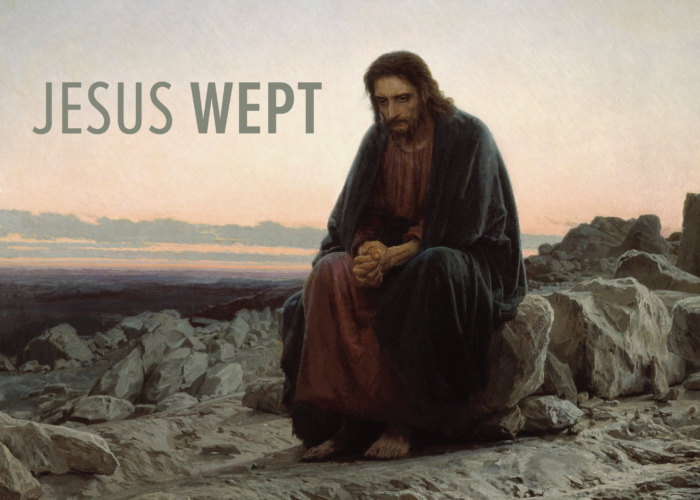JESUS WEPT

Written by Doug Ponder on June 15, 2016
Reckless Hate
“So much death. What can men do against such reckless hate?”
Those are the words of Théoden, king of Rohan, in the famous retelling of J. R. R. Tolkien’s Lord of the Rings. But they’re also the sentiments of so many in the aftermath of the Orlando massacre.
That Sunday, June 12, 2016—a date which will live in infamy—the Pulse nightclub of Orlando was suddenly and deliberately attacked by a mentally unstable gay Muslim man.
Though the facts are still coming in, my Facebook feed has turned into a kaleidoscope of responses:
Some seized the moment to call for stricter gun control.
Some have blamed (radical) Islam; some have blamed all religion.
Some have highlighted prejudice against the LGBT community.
Some have requested greater help for the mentally unstable.
Some have called out a perceived silence from specific leaders.
Many have offered strong denunciations of the violence, empathetic prayers, and practical forms of help.
Most have simply struggled to deal with the sheer reality of evil in the world, which shows no signs of going away anytime soon.
So much death. What can men do against such reckless hate?
I think Jesus has already given us the answer.
Jesus Wept
The Gospels are full of examples of how Jesus responded to the suffering of those around him, but a particularly moving story is recorded in the eleventh chapter of John. There we read see Jesus joining with people grieving a man who died much too young.
Most were mourning (John 11:33).
Many were consoling (John 11:19, 31).
Some were blaming (John 11:21, 37).
Jesus was weeping (John 11:35).
And the context makes it clear that his were tears of sadness and anger. Jesus was sad and mad at the state of the world because he knew that this was not the way it’s supposed to be.
This means Jesus could be sad and mad at the state of the world, with all its sin and suffering, without being sad and mad at himself as God. It means Jesus first identifies with our suffering, and then atones for the very sins that caused it.
Jesus’ response to our suffering is unparalleled in its love and power and beauty! He is the God who suffers with us, and he is the God who suffered for us too.
Man of Sorrows
Jesus’ tears were not just a momentary surge of emotion. They were part of why he came to live among us, just as the prophet Isaiah foretold: “He was despised and rejected—a man of sorrows, acquainted with deepest grief” (Isa. 53:3).
Jesus is the Man of Sorrows.
He knows what it’s like to be mocked and ridiculed (as many LGBT persons have been).
He knows what it’s like to be shamed and shunned (he was even abandoned by his friends and family).
He knows what it’s like to be falsely accused and condemned.
He knows what it’s like to be wrongfully tortured and killed.
And Jesus doesn’t just show his support for us; he actually shares our sorrows too: “Surely he took up our pain and bore our suffering” (Isa. 53:4). Jesus suffered the worst the world can do—and he did this willingly—in order to suffer with us (Heb 4:15) and to atone for all the suffering that we ourselves have caused.
Jesus first suffered with us so that he might also suffer for us. The Man of Sorrows was not only sorrowful because he experienced life as we do in this world stained by sin; Jesus was sorrowful because he suffered in our place, taking upon himself the just judgment of God for all our sins:
“He was pierced for our transgressions,
crushed for our sins.
The punishment that brought us peace was upon him,
and by his wounds we are healed.
We all, like sheep, have gone astray,
each of us has turned to our own way.
Yet the Lord has laid on him the sins us of all.” (Isa 53:5-6)
What about Our Response?
How should we respond to tragedies like the Orlando shooting? “Weep with those who weep,” God tells us (Rom 12:15). Then look to the Man of Sorrows who suffers with us and suffered for us, so that all might find hope in him.
Doug Ponder is one of the founding pastors of Remnant Church in Richmond, VA, where he serves in many of the church’s teaching ministries. He has contributed to several published works and is a regular contributor to RE|SOURCE. His interests include the intersection of theology, ethics, and the Christian life. Follow him on Twitter @dougponder.






